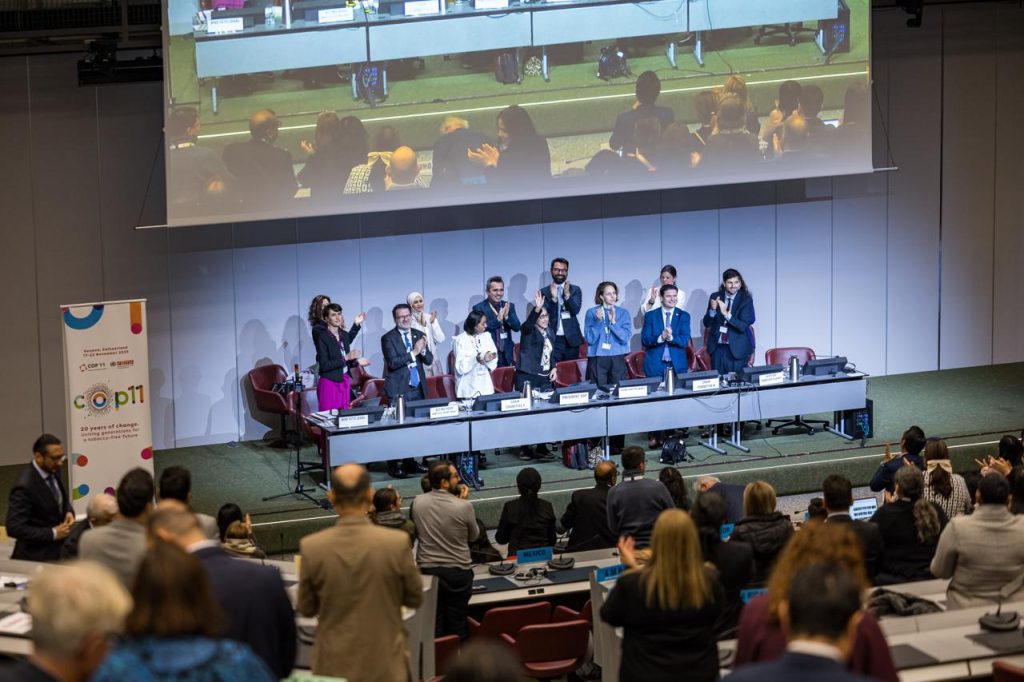The Eleventh session of the Conference of the Parties (COP11) to the World Health Organisation (WHO) Framework Convention on Tobacco Control (FCTC) has closed in Geneva with delegates adopting strong new measures aimed at reducing the environmental harms caused by tobacco production, consumption, and waste.
The week-long meeting, held from 17–22 November 2025, brought together 160 Parties to negotiate updated commitments under what is widely regarded as one of the most successful public health treaties in UN history.
According to the statement shared on Saturday by WHO, it noted that central to this year’s decisions were policies targeting the environmental impact of tobacco, which continues to pollute ecosystems with trillions of cigarette filters, chemicals, electronic waste and nicotine-containing products annually.
Read Also: Flavoured Tobacco kill 8 million people die yearly, says WHO
A new decision adopted at COP11 invites Parties to consider comprehensive regulations on components of tobacco and nicotine products, both internal and external, that contribute to environmental degradation, while also factoring in broader public health impacts.
Delegates also examined strategies to prevent and manage waste arising from emerging nicotine technologies, including electronic devices and disposable products.
Andrew Black, Acting Head of the FCTC Secretariat, welcomed the outcomes, describing them as major steps toward protecting both people and the planet.
“These important decisions made by Parties to the Convention will contribute towards saving millions of lives in the years to come and protecting the planet from the environmental harms of tobacco,” he said.
Beyond environmental measures, COP11 also advanced discussions on strengthening domestic funding for national tobacco control programmes, with Parties reaffirming that long-term investment is essential for sustainable progress.
However, delegates further explored the question of liability under Article 19 of the Convention, encouraging greater legislative action and cooperation to hold the tobacco industry accountable for the damage caused by its products.
As Parties look ahead, forward-thinking approaches to tobacco control—including strategies beyond the Convention requirements—were also discussed.
One decision approved calls for a complete ban on the sale and use of all tobacco and nicotine products within United Nations premises worldwide.
With more than 1,600 registrations, this year’s COP recorded its highest participation to date, with observer organisations, civil society groups and youth advocates also contributing to the discussions.
It was confirmed that the Twelfth Conference of the Parties and the Fifth Meeting of the Parties to the Protocol to Eliminate Illicit Trade in Tobacco Products will take place in Yerevan, Armenia, in 2027.



